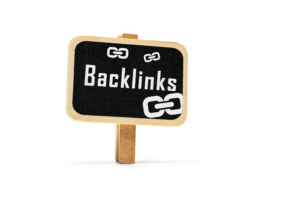How to improve your website or blog’s SEO?
Here’s a comprehensive guide to help you boost your SEO efforts:
1. Perform Keyword Research:
Identify relevant keywords and phrases that your target audience uses to search for content similar to yours. Use keyword research tools like Google Keyword Planner, Ahrefs, or SEMrush to find valuable keywords with reasonable search volume and lower competition.
2. High-Quality Content Creation:
Create valuable, informative, and engaging content that caters to the needs of your audience. High-quality content not only attracts readers but also increases the likelihood of other websites linking to it, which can improve your search rankings.
3. Optimize Title Tags and Meta Descriptions:
Craft compelling title tags and meta descriptions for each page or blog post. Use relevant keywords in these elements to make your content more appealing to both search engines and users.
4. Mobile Optimization:
Ensure your website is responsive and mobile-friendly. With the majority of internet users accessing content through mobile devices, Google and other search engines prioritize mobile-friendly websites in their rankings.
5. Page Speed Optimization:
Improve your website’s loading speed by compressing images, enabling browser caching, and using a Content Delivery Network (CDN). A faster website leads to better user experience and higher search engine rankings.
6. Optimize URL Structure:
Create clean, descriptive, and SEO-friendly URLs for your pages and blog posts. Avoid using lengthy, complex URLs with unnecessary parameters.
7. Use Header Tags (H1, H2, H3, etc.):
Structure your content using header tags (H1 for main headings, H2 for subheadings, etc.). This not only improves readability but also helps search engines understand the hierarchy and importance of your content.
8. Internal Linking:
Link to other relevant pages and blog posts within your website. Internal linking improves site navigation, encourages users to explore more of your content, and helps search engines understand the interconnectedness of your pages.
9. Optimize Images:
Compress images to reduce file sizes without sacrificing quality. Use descriptive alt tags for images to help search engines understand their content.
10. SSL Certificate (HTTPS):
Obtain an SSL certificate for your website to encrypt data and ensure secure communication between the server and the user’s browser. Google considers HTTPS as a ranking factor and prioritizes secure websites in search results.
11. Create a Sitemap:
Generate an XML sitemap for your website and submit it to search engines like Google and Bing. A sitemap helps search engines discover and index all your pages more efficiently.
12. Utilize Social Media:
Share your blog posts and content on social media platforms to increase visibility and drive traffic to your website. While social signals may not directly impact SEO, increased traffic and engagement can indirectly influence rankings.
13. Monitor and Analyze:
Regularly monitor your website’s performance using tools like Google Analytics and Search Console. Analyze data to identify areas for improvement and track the impact of your SEO efforts.
14. Backlink Building:
Focus on building high-quality backlinks from reputable websites. Guest posting, content promotion, and outreach to industry influencers are effective strategies to acquire backlinks.
15. Stay Updated:
Stay informed about the latest SEO trends, algorithm updates, and best practices. SEO is an evolving field, and staying up-to-date will help you adapt your strategies for better results.
Remember that SEO takes time and consistent effort. Be patient and persistent in implementing these strategies, and you’ll gradually see improvements in your website or blog’s search engine rankings and organic traffic.
Enjoyed the blog? Read the article below!
Virtual vs. In-House Administrative Assistants
Found the blog helpful? Read this blog below to learn more!
You can also follow me on my Facebook Page. Fancy Freelancers, to learn more about being a Virtual Assistant.
Date Created: July 26, 2023
Latest posts by Candace Patrice (see all)
- Why Every Entrepreneur Needs a Virtual Assistant in 2024 - June 23, 2024
- testing - May 3, 2024
- Discover Better Time Management by Hiring a VA - May 3, 2024
Discover more from Fancy Freelancers
Subscribe to get the latest posts sent to your email.
















